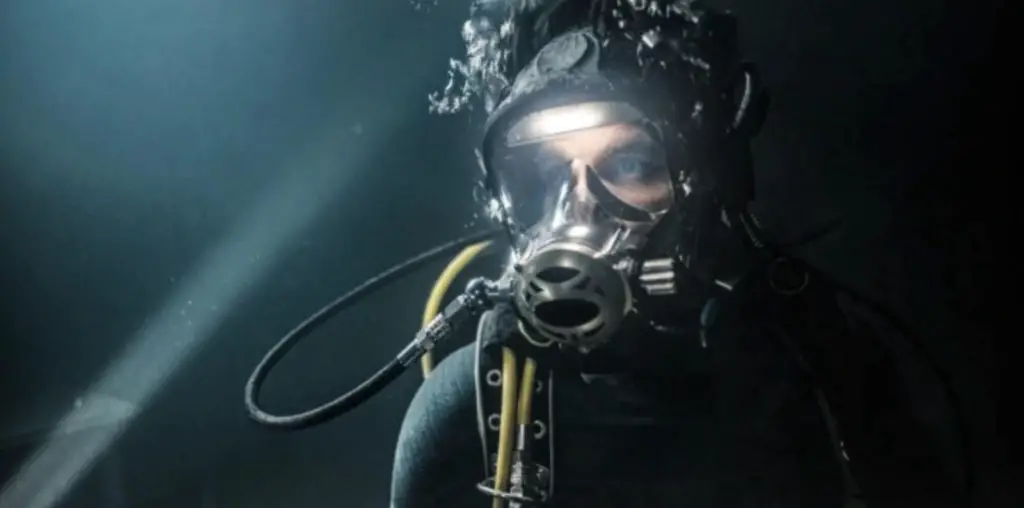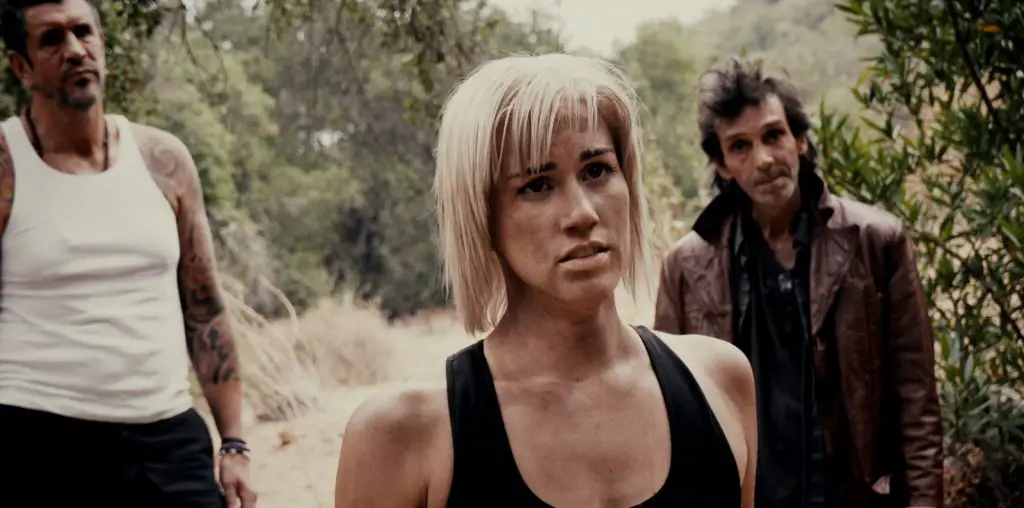
The horrors of science and parenthood collide in “Splice,” the new film from “Cube” director Vincenzo Natali. It begins when a couple (literally) of hipster scientists named Clive and Elsa (Adrian Brody and Sarah Polley), working alongside their tragically-coiffed assistants, synthesize a cure-all protein for livestock using the phallic animal hybrid creatures that they invented. But, since this amazing new protein won’t help the humans of this world beat their human diseases, Elsa gets a bug up her a*s about taking it to the next level. What they need to do, she figures, is throw some people into this genetic recipe. The big old corporation they do science for doesn’t think this is such a good idea, but Elsa convinces Clive that they should do it anyway. You know, just to see if it’ll work. They won’t even bring it to term, she says. What’s the worst that can happen? She forgets, of course, that the gestational period of fantastical creatures is always expedited. Before they know it, their genetic abomination of a love child is born and hopping around the lab making all kinds of trouble. At first, it’s cute trouble, like knocking things over and making a mess. But the trouble gets ugly in a hurry.
It took a little while for me to warm up to “Splice.” It seems to take itself pretty seriously whilst having its characters say and do silly things. The Frankenstein parallels (including the characters’ names and a shot of a Frankenstein’s Monster toy) are a little on the nose. There is a dance metaphor in the beginning, which they really run into the ground. Clive and Elsa name their slug phalluses Fred and Ginger and work through their genetic problems by comparing gene spicing to choreography. Right out of the gate, their scientific methods are highly suspect. Clive spends a lot of time typing formulas into a computer and begging them to “come on” while he waits to see if they work. Meanwhile Elsa hovers over him saying supportive things. When the formula finally does “come on,” she dubs him “Bob f*****g Fosse!” For scientists, they aren’t very smart. But then it occurred to me that we aren’t supposed to like these guys. Because maybe this isn’t a movie about scary science as much as it is a cautionary tale about breeding. Elsa and Clive, a young, fertile couple, discuss the notion of someday having kids. However, instead of getting a practice dog like normal people, they decide to practice on a test tube freak named Dren. It’s a girl.
Being a new parent is hard. Dren is a lot more work than they bargained for. She doesn’t just sit placidly in a glass case like Fred and Ginger. Clive and Elsa inadvertently find themselves living out many typical parental nightmares like illness and budding sexuality. The film also delves into the less explored, more emotionally taxing issues, like an adolescent daughter’s tempestuous relationship with her mother, what happens if she develops an Elektra complex, and how parental paranoia-induced social isolation can effect a young thing. Of course, since the child in question is a freakish, fowl-legged, amphibious mutant, the youthful rebellion gets bloody.
What “Splice” lacks in dialogue and plot contrivance, it makes up for in complex thematic elements. It’s staggering how many ethical questions they cram into the film. “There are moral considerations,” Clive warns Elsa early on. But he doesn’t go into specifics. Instead, the moral considerations reveal themselves after it’s too late to do anything about it. Should science play God just because it can? When does life begin? At which point do you relinquish control from the life you created? Are there some people who just shouldn’t have kids? Should a man be held responsible for where his penis ends up?
But the special effects are what really sell the film. Not since Gollum has a CG enhanced creature felt so real. Dren starts out a cute, armless rat and spends a brief stint as Rocky Dennis in a dress before blossoming into a beautiful, bald, supermodel with big, weird eyes set too far apart. She communicates in clicks and whistles, which sound simultaneously human and alien. Though she ages physically, she remains much like a real human baby, looking with equal parts wonder, fear, and frustration at a world she doesn’t understand. Clive and Elsa oscillate between pride and regret, repeatedly resolving to euthanize their creation before something happens to change their minds. You know this isn’t going anywhere good and, though it’s often easy to predict what’s going to happen next, it’s exciting when it does. Though “Splice” has viscera a-plenty, the horror of it isn’t in the gore. It’s in the notion that sometimes children end up evil and it might be entirely our fault.


[…] Read Full Review. Here… […]
This was a great little science fiction flick and very engrossing in its study of parental relationships and adapting to a new environment by a new species that will eventually present itself as a third gender. I enjoyed it very much.
I’m looking forward to seeing this. I’m a fan of Polley’s.
Wow. I’m glad I read your review. I was going to see this film but perhaps I should wait until it airs on late night TBS or Fox in seven years.
I really like what you say here: Because maybe this isn’t a movie about scary science as much as it is a cautionary tale about breeding. Elsa and Clive, a young, fertile couple, discuss the notion of someday having kids. However, instead of getting a practice dog like normal people, they decide to practice on a test tube freak named Dren.
I assure you I am not on the production company’s payroll. It would appear that we just have a difference in opinion on this film. I’m just curious if you have you actually seen “Splice”. I’ve seen Whale’s “Frankenstein” and liked that too. But I think that one is more about science-gone-wrong and less about inadvertent parenthood. I think there’s room for both films.
I sense a payola scam with your review, your making more of the ethical issue than what the film actually pursued. At best a silly horror film with little regard for character development (including the creature Dren), at worst, a notch down for director Natali, who gave us the excellent film Cube. If you want ethical issues in, might I suggest the original classic black and white movies of the 30’s, Island of lost Souls by Kenton and Whales’s Frankenstein. Those will show you how it’s done…..right.